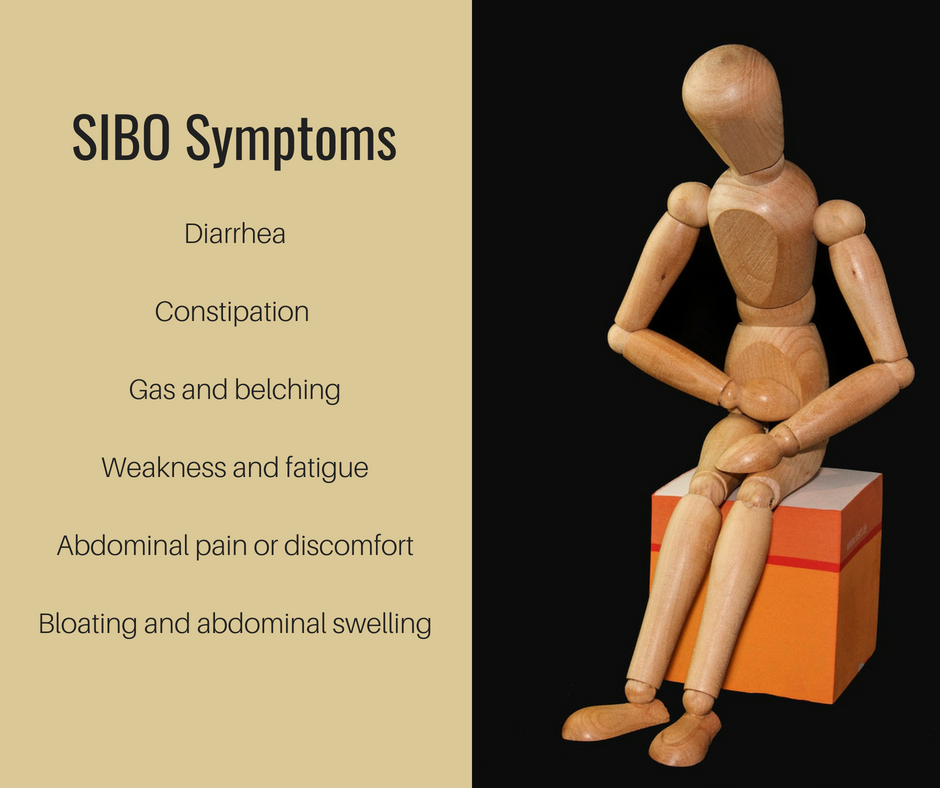What, Why, and How to Manage It.
Small Intestinal Bacterial Overgrowth. The small intestine – despite its name, it’s actually a whopping 20 feet of very important business! Working alongside your stomach and large intestine, the small intestine has the critical job of digesting food and absorbing nutrients to keep us in good health. As if that wasn’t significant enough, our little intestinal friend is also a key contributor to maintaining a healthy immune system.
The small intestine is the home of specific beneficial microorganisms that help protect our bodies against bad (pathogenic) bacteria and yeast. These good bacteria also do their part to produce valuable vitamins and nutrients like vitamin K and folate. They are the keepers of the small intestine, ensuring that it continues to do its thing, muscling waves of food through your gut.
But what is SIBO and why does it happen?
SIBO stands for “small intestinal bacterial overgrowth,” an issue that occurs when there is an increase of bacteria and/or a change in the type of bacteria present. Most often SIBO is caused when bacteria that should stay in the colon (also known as the large intestine), finds its way into the small intestine…in large quantities.
SIBO is like a bad tenant. It invites all its rowdy friends in for a party and leaves behind all sorts of damage to the cell lining of the small intestine. This can lead to a condition we wrote about a couple months ago called leaky gut, which allows large protein molecules to move through the intestinal barrier and escape into the bloodstream. As you can imagine, this causes a number of problems, including general inflammation, immune reactions that cause food allergies, and the onset of autoimmune diseases.
These havoc-wreaking bad bacteria are also responsible for uncomfortable conditions like poor digestion, diarrhea, and malabsorption. Patients with SIBO may suffer from nutritional deficiencies, as well – particularly iron, vitamin B12, and fat-soluble vitamins A, D, E and K, as well as unintended weight loss, and even osteoporosis.
So how do I know if I have SIBO?
SIBO is considered an underdiagnosed condition as many people do not seek medical care for their symptoms. Be alert! Watch out for these common SIBO symptoms:
- Bloating and abdominal swelling
- Abdominal pain/discomfort
- Diarrhea
- Constipation
- Gas/belching
- Weakness and fatigue
In the most severe cases, patients will also experience weight loss and vitamin deficiency-related symptoms.
Are you at risk for SIBO?
While elderly people are the most vulnerable to developing SIBO, there are multiple other risk factors that can increase your chances, no matter what your age is. These include:
- Medication, especially antibiotics
- Gastric acid suppression or Low Stomach Acid (due to stress, medications, lifestyle factors)
- Fibromyalgia
- Celiac disease
- Crohn’s disease
- Prior bowel surgery
- Diabetes Types I & II
- Irritable bowel syndrome
- Organ system dysfunction
Studies also indicate that moderate alcohol consumption — that’s one drink a day for women and two for men — not only promotes the overgrowth of certain types of bacteria, but it can also impair vital functions. In other words, too much alcohol can result in small bowel injury and decreased muscle contractions!
If you are experiencing any of the symptoms mentioned above or think you might be at risk, we encourage you to make an appointment to assess your symptoms and get tested. Specialized testing can be accomplished through a breath test. This breath test measures your hydrogen and methane gas levels produced by the bacterial metabolism and can be a very helpful indicator in determining whether or not you’re suffering from SIBO.
How can you treat SIBO?
Even though prolonged use of antibiotics is a top risk factor in getting SIBO, antibiotics are still the most popular way to treat SIBO. However, studies show that SIBO returns in nearly half of all patients in less than a year!
Successful treatment of SIBO must be handled just like any other health condition – not with a temporary Band-aid solution, but by dealing with the underlying cause! Intestinal bacteria can be influenced by numerous factors beyond what we eat and how much. Environmental effects, drugs, alcohol, and lifestyle factors such as stress can all be contributing factors to poor gut health. Therefore, the treatment must be unique to the individual.
Once you have identified the cause, SIBO symptoms should be treated with a healthy diet, nutritional supplements, and positive lifestyle changes that help return the body to balance. Keep reading for a few specific tips on how to manage this condition.
Tips for dealing with SIBO
- Eat three meals a day four-to-five hours apart. Resist the urge to snack! We need to give our body time in between meals to improve our intestinal motility. More often than not, motility becomes an issue with people suffering from SIBO.
- With guidance from your holistic practitioner try an elimination diet for two weeks to get your body back on track by reducing inflammation and bacteria overgrowth.
- Enjoy foods that assist digestive health. For example, fresh pineapple which is rich in bromelain can help lower inflammation, and bananas are an excellent source of potassium and manganese that your stomach lining needs for healing.
Do any of the above symptoms or risk factors sound familiar? Do you think you might be suffering from SIBO? We can help! Please contact us at (519) 954-7950 or info@HealthSourceIMC.com, and we’ll get to the bottom of what’s going on and create a plan of action to bring your body back to good health.
To your best health!
The Team at HealthSource Integrative Medical Centre
References:
https://www.ncbi.nlm.nih.gov/pmc/articles/PMC3099351/


